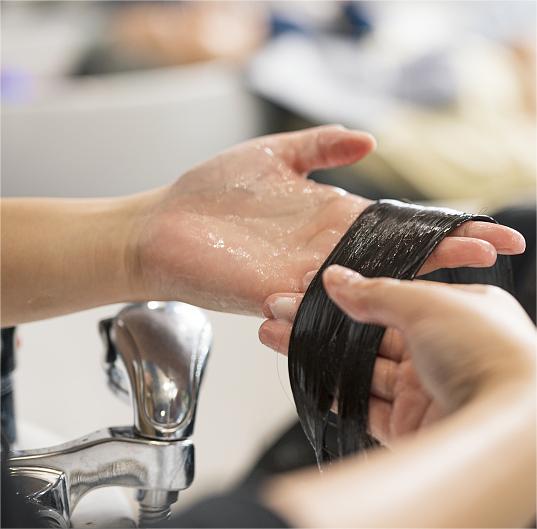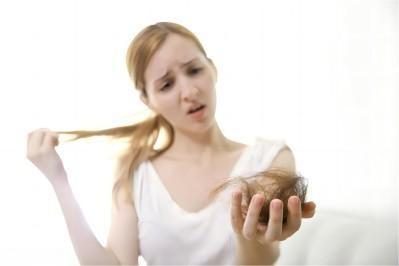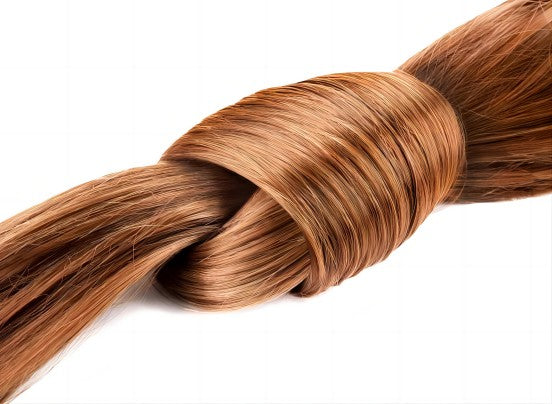Whether you're a seasoned pro or a newbie to the world of hair extensions, our step-by-step guide on "How to Wash Hair Extensions" has got you covered from root to tip – literally!
1. Detangling Techniques Before Washing Hair Extensions
Detangling your hair extensions before washing is crucial. Start by gently brushing them from the tips towards the roots. Use a wide-toothed comb or a specialized loop brush made for extensions. This step prevents tangling during the wash and ensures the shampoo and conditioner can be evenly distributed, providing a more thorough cleanse and a smoother finish.
2. Choosing the Right Shampoo for Washing Hair Extensions
Selecting the correct shampoo is essential in maintaining your hair extensions. Look for a sulfate-free, gentle shampoo. Sulfates are harsh detergents that can strip the natural oils from the extensions, making them dry and prone to damage. Opt for a shampoo designed specifically for hair extensions, as these products are formulated to be both gentle and effective in removing dirt and excess oils.
3. The Importance of Water Temperature in Extension Care
Water temperature is often overlooked but plays a significant role in extension care. Use lukewarm water for washing your extensions. Extremely hot water can weaken the bonds and cause your extensions to slip, while cold water might not effectively remove dirt and product buildup. Lukewarm water strikes the right balance, cleansing your extensions without damaging them.
To strike the perfect balance, opt for lukewarm water, typically around 32-38℃, when washing your extensions. This temperature range ensures a gentle yet effective cleanse without compromising the integrity of the extensions.
4. How to Properly Rinse Hair Extensions to Avoid Residue
Rinsing is where many people make mistakes. Proper rinsing ensures your extensions stay fresh and light.
Certainly, let's delve into the specific details of how to properly rinse hair extensions to avoid residue:
1. Position Extensions Carefully: When rinsing, it's essential to keep your extensions hanging straight down or lying flat on a clean, dry towel. This prevents excessive tangling during the rinse.
2. Rinse from Top to Bottom: Start rinsing at the root area and work your way down to the tips. This method ensures that you're washing away any shampoo and conditioner from the entire length of the extensions.
3. Use Your Fingers: While rinsing, use your fingers to gently comb through the extensions. This helps distribute the water evenly, ensuring a thorough rinse. Be cautious not to pull or tug the extensions.
4. Avoid Rubbing or Scrubbing: Do not rub or scrub the extensions during rinsing. This can create knots, frizz, and even damage. Gentle, downward strokes with your fingers are sufficient.
5. Conditioning Tips for Hydrated and Soft Hair Extensions
Conditioning is crucial to maintaining soft and hydrated hair extensions. Apply a generous amount of conditioner, but steer clear of the root area and the attachment points. After application, use a wide-toothed comb to evenly distribute the conditioner. This ensures your extensions remain soft and helps detangle them further. It's the secret to that silky, touchable finish!
6. Air Drying vs. Blow Drying: What's Best for Extensions?
- Air Drying: Air drying is a gentle and natural way to dry your extensions. It's the preferred method for those who want to minimize heat exposure and the risk of damage. To air dry your extensions, gently squeeze out excess water with a soft towel, then hang or lay them flat on a clean, dry towel. Give them ample time to dry naturally. This method is especially beneficial for those with more time on their hands and who prioritize the longevity of their extensions.
- Blow Drying: If you're in a rush or prefer a more styled finish, blow drying can be a suitable option. However, using the blow dryer on the lowest heat setting is crucial. High heat can damage the extensions, making them dry and brittle. Always maintain a safe distance of at least 6 inches between the dryer and your extensions to prevent overheating.
7. Frequency: How Often Should You Wash Your Hair Extensions?
Overwashing can strip them of natural oils and cause premature wear, while infrequent washing can lead to a dirty and uncomfortable experience. We'll provide guidance on finding the right balance that suits your lifestyle and hair type.






